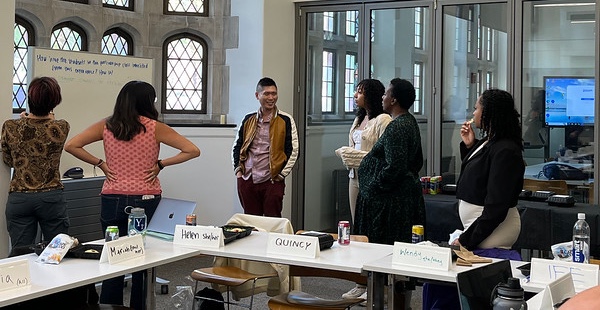We offer several opportunities for faculty to engage in a sustained community with others as they explore their teaching over a year or semester. Our faculty teaching communities will feel most relevant to anyone who is regularly teaching as instructor of record at Yale.
Semester-Long Faculty Learning Communities
Faculty learning communities convene approximately every other week throughout the semester to reflect on teaching practices and to share effective strategies and resources. These learning communities count toward the Faculty Teaching Academy for new faculty.
Pedagogical Partners
In Pedagogical Partners, student partners act as pedagogical consultants in a course that their faculty partner is teaching. The faculty and student partner meet weekly, in addition to three cohort meetings during the semester.
Seminar on Equity-Minded Teaching
This year-long seminar asks faculty to engage in readings on equity-minded teaching and then come together for monthly meetings to reflect and develop strategies for enacting equity in teaching.
Disability Pedagogy and Accessibility Seminar
In this funded seminar, participants create and enact teaching goals that make their classroom environments more equitable for students with disabilities. Participants also reflect on effective ways to discuss disability in the classroom and how higher education institutions can move from ableist to accessible practices.
